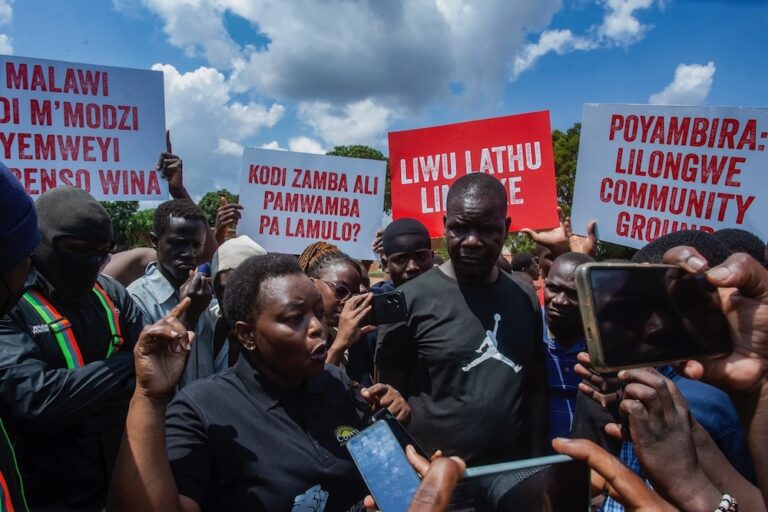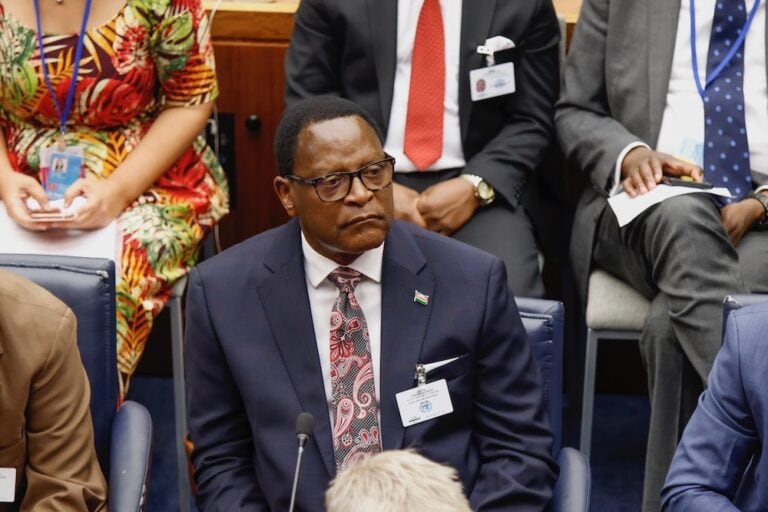(ARTICLE 19/IFEX) – The following is an 8 January 2004 ARTICLE 19 press release: ARTICLE 19 has published a thorough legal analysis of the Malawi Communications Act 1998. This Act was passed by Parliament in November 1998, consolidating previous legislation, establishing the Malawi Communications Regulatory Authority (MACRA) and providing for the reconstitution of the Malawi […]
(ARTICLE 19/IFEX) – The following is an 8 January 2004 ARTICLE 19 press release:
ARTICLE 19 has published a thorough legal analysis of the Malawi Communications Act 1998.
This Act was passed by Parliament in November 1998, consolidating previous legislation, establishing the Malawi Communications Regulatory Authority (MACRA) and providing for the reconstitution of the Malawi Establishment Broadcasting Corporation (MBC). MACRA was envisaged as an autonomous and independent regulatory body, taking over functions performed until then by the Malawi Telecommunications Corporation Limited, a former State company. The intention was to transform MBC from a State broadcaster, whose allegiances lay with the government of the day, into a public service broadcaster.
In the five years since entry into force of the Act, a number of concerns have been raised with regard to regulation of the communications sector. MACRA, in particular, has come under fire for its regular threats of harsh action against private stations and its perceived lenience with public stations. For example, in 2002, it threatened to withdraw the radio licence operated by the Malawi Institute of Journalism (MIJ) but backed down following public outcry. One of MACRA’s reasons for the threatened shutdown was that the MIJ station aired news bulletins instead of mere updates. In June 2003, it threatened to ban community radio stations from airing news items, arguing that this was the role of MBC and Television Malawi. As of September 2003, it had not carried out this threat, although later that month fresh controversy arose as it threatened to ban the privately-owned station Capital Radio on the grounds that it illegally operated mobile ‘outside broadcasting’ studios. In relation to that controversy, commentators pointed to the fact that the Communications Act is silent on the issue of ‘outside broadcasting’ and that MBC had been allowed to use mobile equipment donated by the Malaysian government, in a deal struck by the Minister of Information.
As a result of these and other actions, concerns have been raised over the independent status of MACRA. The controversy surrounding the airing of news programmes by community radio stations has also led to doubts about the constitutionality of parts of the Communications Act, which MACRA invoked in support of its ban. Finally, MBC, in spite of its reconstitution as a public service broadcaster, is frequently accused of displaying a notable pro-government bias. It has been granted a seven-year monopoly on television broadcasting. MACRA takes the view that it falls outside its regulatory remit, and given that MBC’s Board is appointed by the President this means there is no effective independent regulatory body to hold MBC to account in cases of alleged political bias.
In light of these concerns, the present Memorandum by ARTICLE 19 examines the manner in which the Malawi Communications Act 1998 regulates the broadcast sector against international standards on freedom of expression. It analyses the statutory constitution of MACRA, as well as the MBC, with particular attention to their independence from government. It also examines the various constraints and regulations that the Act imposes on broadcasters generally. Recommendations for reform are provided throughout.
The full memorandum can be found on ARTICLE 19’s website, at
http://www.article19.org/docimages/1706.doc.


